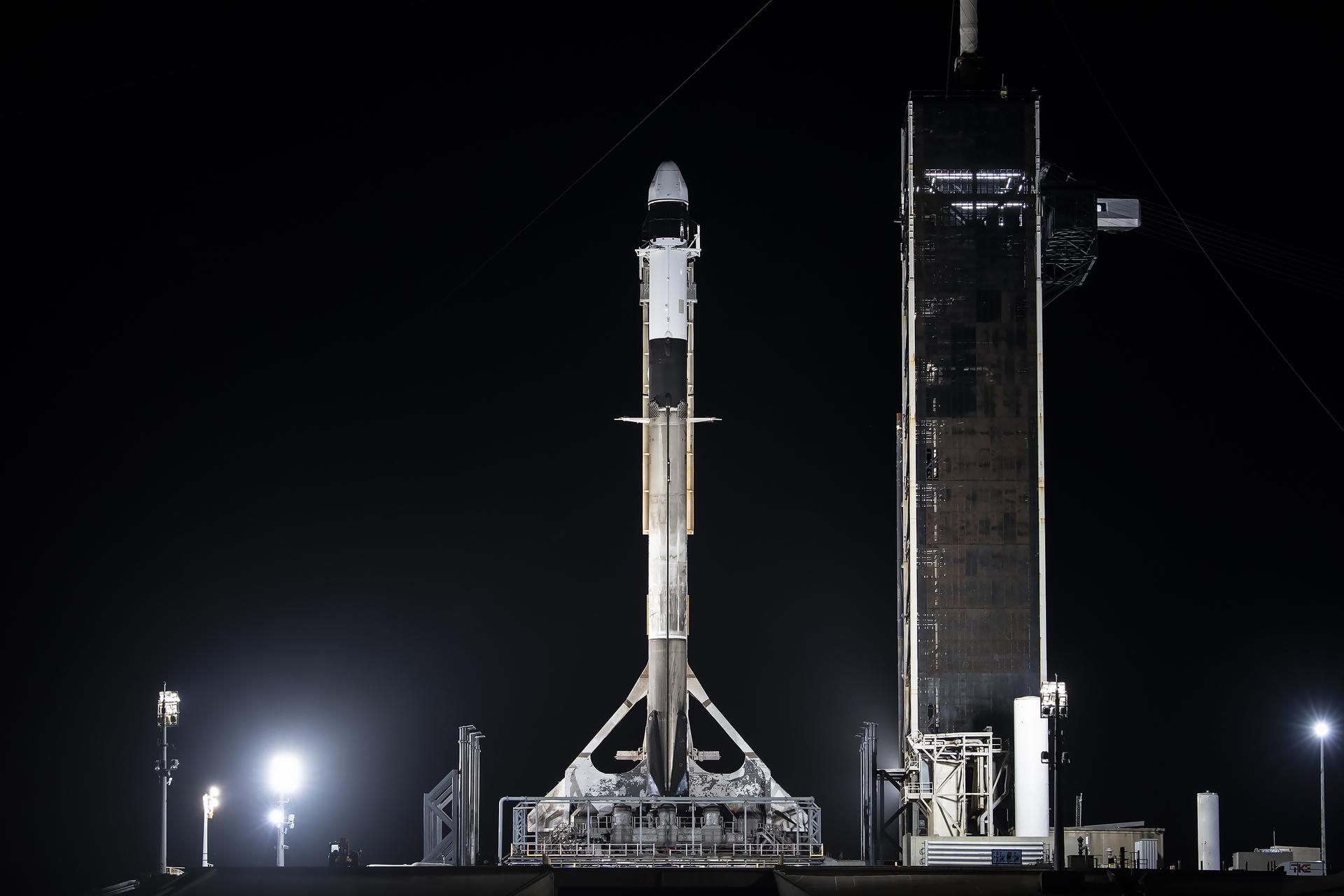NASA Sets Coverage for SpaceX 32nd Station Resupply Launch, Arrival
- NASA and SpaceX are targeting April 21 for the 32nd SpaceX commercial resupply services mission to the International Space Station, which will deliver over 6,400 pounds of supplies.
- The Dragon spacecraft, carrying a variety of science experiments, including a demonstration of refined maneuvers for free-floating robots and an enhanced air quality monitoring system, is scheduled to arrive at the space station on April 22.
- Live launch coverage will begin at 3:55 a.m. EDT on April 21 on NASA+, with audio streaming available on the agency’s website. The spacecraft will dock autonomously to the zenith port of the Harmony module at 8:20 a.m. EDT.
- The Dragon spacecraft is filled with food, essential equipment for the crew, and scientific experiments that could protect crew members on exploration missions to the Moon and Mars.
- Members of the public can register to attend this launch virtually, and NASA will provide live streaming, blog updates, and social media coverage throughout the mission.
NASA and SpaceX are targeting 4:15 a.m. EDT, Monday, April 21, for the next launch to deliver science investigations, supplies, and equipment to the International Space Station. This is the 32nd SpaceX commercial resupply services mission to the orbiting laboratory for the agency.
Filled with more than 6,400 pounds of supplies, a SpaceX Dragon spacecraft on a Falcon 9 rocket will lift off from Launch Complex 39A at NASA’s Kennedy Space Center in Florida.
Live launch coverage will begin at 3:55 a.m. on NASA+. Learn how to watch NASA content through a variety of platforms.
NASA’s coverage of Dragon’s arrival to the orbital outpost will begin at 6:45 a.m. Tuesday, April 22, on NASA+. The spacecraft will dock autonomously to the zenith port of the space station’s Harmony module.
Along with food and essential equipment for the crew, Dragon is delivering a variety of science experiments, including a demonstration of refined maneuvers for free-floating robots. Dragon also carries an enhanced air quality monitoring system that could protect crew members on exploration missions to the Moon and Mars, and two atomic clocks to examine fundamental physics concepts such as relativity and test worldwide synchronization of precision timepieces.
The Dragon spacecraft is scheduled to remain at the space station until May, when it will depart and return to Earth with research and cargo, splashing down off the coast of California.
NASA’s mission coverage is as follows (all times Eastern and subject to change based on real-time operations):
Wednesday, April 16
1 p.m. – International Space Station National Lab Science Webinar with the following participants:
- Jennifer Buchli, chief scientist, NASA’s International Space Station Program
- Michael Roberts, chief scientific officer, International Space Station National Lab
- Claire Fortenberry, research aerospace engineer, NASA’s Glenn Research Center in Cleveland
- Yupeng Chen, co-founder, Eascra Biotech
- Mari Anne Snow, CEO, Eascra Biotech
- Maj. Travis Tubbs, U.S. Air Force Academy
- Heath Mills, co-founder, Rhodium Scientific
- Sarah Wyatt, researcher, Ohio University
Media who wish to participate must register for Zoom access no later than one hour before the start of the webinar.
Audio of the teleconference will stream live on the International Space Station National Lab website.
Friday, April 18
3 p.m. – Prelaunch media teleconference (no earlier than one hour after completion of the Launch Readiness Review) with the following participants:
- Zebulon Scoville, deputy manager, Transportation Integration Office, NASA’s International Space Station Program
- Jennifer Buchli, chief scientist, NASA’s International Space Station Program
- Sarah Walker, director, Dragon Mission Management, SpaceX
- Jimmy Taeger, launch weather officer, 45th Weather Squadron, Cape Canaveral Space Force Station
Media who wish to participate by phone must request dial-in information by 5 p.m. Thursday, April 17, by emailing Kennedy’s newsroom at: ksc-media-accreditat@mail.nasa.gov.
Audio of the teleconference will stream live on the agency’s website.
Monday, April 21:
3:55 a.m. – Launch coverage begins on NASA+.
4:15 a.m. – Launch
Tuesday, April 22:
6:45 a.m. – Arrival coverage begins on NASA+.
8:20 a.m. – Docking
NASA website launch coverage
Launch day coverage of the mission will be available on the NASA website. Coverage will include live streaming and blog updates beginning no earlier than 3:55 a.m., April 21, as the countdown milestones occur. On-demand streaming video on NASA+ and photos of the launch will be available shortly after liftoff. For questions about countdown coverage, contact the NASA Kennedy newsroom at 321-867-2468. Follow countdown coverage on our International Space Station blog for updates.
Attend Launch Virtually
Members of the public can register to attend this launch virtually. NASA’s virtual guest program for this mission also includes curated launch resources, notifications about related opportunities or changes, and a stamp for the NASA virtual guest passport following launch.
Watch, Engage on Social Media
Let people know you’re watching the mission on X, Facebook, and Instagram by following and tagging these accounts:
X: @NASA, @NASAKennedy, @NASASocial, @Space_Station, @ISS_Research,
Facebook: NASA, NASAKennedy, ISS, ISS National Lab
Instagram: @NASA, @NASAKennedy, @ISS, @ISSNationalLab
Coverage en Espanol
Did you know NASA has a Spanish section called NASA en Espanol? Check out NASA en Espanol on X, Instagram, Facebook, and YouTube for additional mission coverage.
Para obtener información sobre cobertura en español en el Centro Espacial Kennedy o si desea solicitar entrevistas en español, comuníquese con Antonia Jaramillo o Messod Bendayan a: antonia.jaramillobotero@nasa.gov o messod.c.bendayan@nasa.gov.
Learn more about the commercial resupply mission at:
https://www.nasa.gov/mission/nasas-spacex-crs-32/
-end-
Julian Coltre / Josh Finch
Headquarters, Washington
202-358-1100
julian.n.coltre@nasa.gov / joshua.a.finch@nasa.gov
Stephanie Plucinsky / Steven Siceloff
Kennedy Space Center, Florida
321-876-2468
stephanie.n.plucinsky@nasa.gov / steven.p.siceloff@nasa.gov
Sandra Jones
Johnson Space Center, Houston
281-483-5111
sandra.p.jones@nasa.gov

